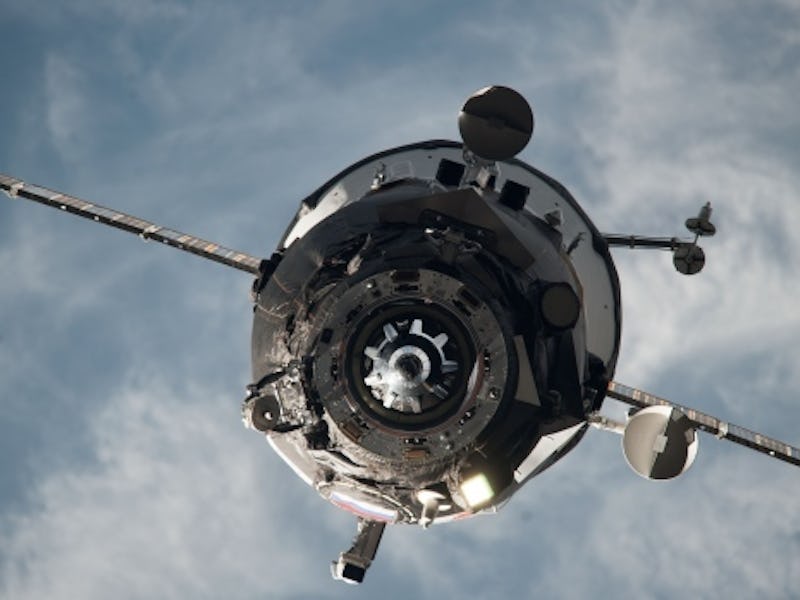Following a picture-perfect launch, Russia’s space agency (aka Roscosmos) announced that the Progress cargo ship bound for the International Space Station (ISS), is lost. According to Russian mission control, the vehicle burned up in the atmosphere shortly after launch. Preliminary data points to the vehicle burned up in the atmosphere shortly after launch — a Soyuz-U rocket — as causing the failure.
The Progress MS-04 spacecraft — an unpiloted cargo vessel — lifted off at 9:51 a.m. Eastern from the historic Baikonur Cosmodrome in Kazakhstan, on a mission to deliver more than 5,400 pounds of food, equipment, and other supplies (including a new spacesuit) to the ISS. It was expected to arrive at the orbital outpost on Saturday, December 3.
Roscosmos confirmed the loss in a statement, explaining that engineers lost telemetry — meaning communications with the spacecraft — during the rocket’s third stage burn. The space agency said the cargo ship burnt up in the atmosphere as it flew nearly 120 miles over the Tuva Republic in Southern Russia.
The rocket lifted off on time and the flight proceeded nominally until approximately six minutes and 22 seconds into the flight — which is just over two minutes until the Progress spacecraft was to reach orbit. If everything had proceeded as expected, at this point the craft would have deployed its navigation antennas and extended its solar arrays. Instead, ground crews received “ratty” telemetry and could not verify the status of the Progress.
Early reports indicate that the craft may have separated prematurely from the Soyuz. However, NASA says that the data received from the spacecraft is not enough to definitively say what went wrong with the Progress. Roscosmos has sent their Progress team home, and turned the investigation over to a state commission, which is the usual process in the event of a launch failure.
This incident marks the fourth loss of a resupply mission in just 25 months. In October 2014, an Orbital ATK Cygnus cargo freighter and its Antares rocket exploded moments after liftoff, marking the beginning of a string of cargo failures that included the loss of a Russian Progress spacecraft in April 2015, and a SpaceX Dragon capsule in June 2015.
Today’s resupply mission was the third Progress vehicle to launch this year, and the 65th Progress resupply mission to launch to the station since 2000.
The craft was packed with nearly 700 pounds of food for the crew, as well as several hundred pounds of medical gear, personal hygiene items, and health monitoring equipment, supplies for the Russian segments toilet and waste containers, and hardware for various life-support systems such as air purification, and water-recycling.
Following the failure, NASA released a statement explaining that “the Expedition 50 crew is safe aboard the station. Consumables aboard the station are at good levels.”
The crew won’t have to wait long for the next resupply mission, as a Japanese HTV cargo ship will launch on December 9, carrying a bevy of experiments and provisions, as well as six lithium-ion batteries, which will be used to update the station’s power system.
